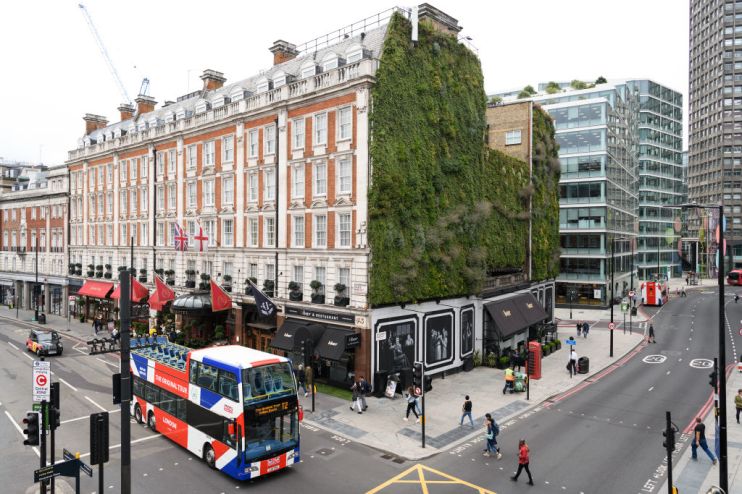Greening the economic recovery is vital for the UK’s long-term prosperity

The decisions we make in the coming weeks and months on how the UK economy recovers from covid-19 will shape our economy for decades. It is crucial that we start to phase-out carbon intensive industries and lock-in clean, green innovation.
The Covid-19 pandemic has brought into sharp focus what happens when humans disrupt natural systems and destroy biodiversity. Human consumption, population growth and deforestation are degrading wildlife habitats and bringing humans and animals into closer proximity than ever before.
Read more: Zedify: Meet the firm trying to make our city streets greener
The pandemic must serve as a wake-up call that we cannot continue treating our environment this way. We must protect biodiversity and ecosystems, and stem rising emissions. The risks by failing to do so are too great.
My Committee has today published a report considering how we can grow back better from covid-19. We have suggested some win-wins that the Government can use to stimulate economic recovery, while restoring nature and putting the UK at the forefront of the low-carbon transition.
While the Prime Minister’s 10-point plan for a green industrial revolution points in the right direction, but it requires underlying strategies (such as the long-overdue hydrogen strategy) to be published as a priority, with tangible deliverables spelt out, if net-zero Britain is to succeed.
Specifically, we are recommending that the tax system rewards green innovation. We would like to see the Chancellor in the upcoming Budget reduce VAT on low-carbon energy efficiency measures, and on repair and recycled products, to drive a more circular economy; as well as tax incentives to boost the take-up of electric vehicles.
The Government should also begin scoping work on a carbon tax to incentivise low-carbon changes across the whole economy. These initiatives can all help to accelerate the path to being low-carbon and make environmentally friendly choices for consumers more appealing. It will reward the countless green innovators scattered around the country, whose businesses are fundamental to achieving our net-zero ambitions.
Read more: Aviva to sell stake in Italian life insurance venture for €400m
The financial risks of returning to a high-carbon business as usual model of economic growth after this crisis are colossal. The current carbon footprint of the UK corporate sector puts us on course for global temperature rises nearer to 4 degrees than the 1.5 degrees goal of the Paris Agreement. We heard from the insurance company Aviva that temperature rises above 3 degrees would pose enormous risks to the value of stocks and would cause an existential crisis for the insurance industry.
One of the first steps towards fixing this is to ensure that quantitative easing does not provide an implicit subsidy to high carbon sectors. That is why we have called on the Bank of England to reduce the average carbon intensity of its corporate bond portfolio to align with the temperature goals of the Paris Agreement. We are delighted that the Bank Governor Andrew Bailey has entered talks with the Treasury to discuss how best to act upon our recommendation. We would like to see the Bank set out the steps it intends to take on this before the COP26 climate summit in Glasgow this Autumn.
My Committee also recommends that the Government looks through a ‘green lens’ when considering infrastructure spending. Nature and biodiversity must be considered at every opportunity. The Government should use the upcoming transport decarbonisation strategy to set out plans to roll out electric vehicle charging points, improve our public transport systems and support cleaner air in our towns and cities by promoting walking and cycling.
Where quick improvements can be made, they should be, such as front-loading investment in areas such as energy efficiency upgrades, which could have countless multipliers ranging from more green jobs to breathing cleaner air and enjoying warmer homes.
Growing back better from Covid-19 is entirely possible, and we must seize this opportunity to mould an economy fit for the future. We cannot simply go back to how things were – our actions have consequences for the natural world that are simply too great. The speed of the vaccine roll-out to combat coronavirus shows what can happen when the world really puts its mind to something – we need that vigour to develop solutions to the climate crisis. There will be no vaccine against runaway climate change.
Read more: Why Larry Fink is right to hail the great reallocation